June 12, 2014 •
Toronto Appoints New Integrity Commissioner
On June 11, the Toronto, Canada City Council appointed Valerie L. Jepson as the city’s new integrity commissioner. According to the city’s press release, Jepson was counsel for the Office of the Ontario Integrity Commissioner since 2007. Jepson replaces Janet […]
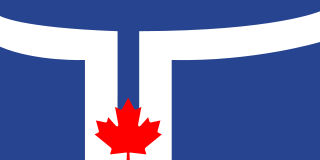 On June 11, the Toronto, Canada City Council appointed Valerie L. Jepson as the city’s new integrity commissioner. According to the city’s press release, Jepson was counsel for the Office of the Ontario Integrity Commissioner since 2007. Jepson replaces Janet Leiper, the commissioner since 1999.
On June 11, the Toronto, Canada City Council appointed Valerie L. Jepson as the city’s new integrity commissioner. According to the city’s press release, Jepson was counsel for the Office of the Ontario Integrity Commissioner since 2007. Jepson replaces Janet Leiper, the commissioner since 1999.
May 22, 2014 •
New Brunswick Passes Lobbyists’ Registration Act
The day before scheduled adjournment, New Brunswick’s Legislative Assembly approved the Lobbyists’ Registration Act, establishing a lobbyist registry for the province. The Act establishes a registrar of lobbyists and outlines requirements for registration by consultant and in-house lobbyists. The province […]
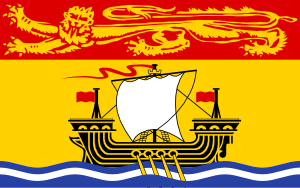 The day before scheduled adjournment, New Brunswick’s Legislative Assembly approved the Lobbyists’ Registration Act, establishing a lobbyist registry for the province.
The day before scheduled adjournment, New Brunswick’s Legislative Assembly approved the Lobbyists’ Registration Act, establishing a lobbyist registry for the province.
The Act establishes a registrar of lobbyists and outlines requirements for registration by consultant and in-house lobbyists.
The province attempted to create a registry a number of times over the last several years, but failed because of financial concerns and technical complications.
May 22, 2014 •
Canada Lobbying Commissioner Reports on Public Feedback
Commissioner of Lobbying Karen Shepherd intends to revise the Lobbyists’ Code of Conduct following a period of public consultation launched in September 2013. The consultation offered participants the chance to submit suggestions for improvement by writing and by roundtable discussion. […]
 Commissioner of Lobbying Karen Shepherd intends to revise the Lobbyists’ Code of Conduct following a period of public consultation launched in September 2013.
Commissioner of Lobbying Karen Shepherd intends to revise the Lobbyists’ Code of Conduct following a period of public consultation launched in September 2013.
The consultation offered participants the chance to submit suggestions for improvement by writing and by roundtable discussion. Suggestions included deregulation of lobbyist-client interactions and more clarity in the gift law.
Shepherd has produced a report on the consultation available here.
May 21, 2014 •
Yukon Assembly Adjourns
The first session of the 33rd Yukon Legislative Assembly, which convened on March 25, adjourned on May 15, 2014. The Legislative Assembly is scheduled to reconvene later this year. The session dates will be announced two weeks before the session […]
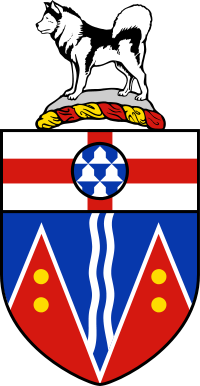 The first session of the 33rd Yukon Legislative Assembly, which convened on March 25, adjourned on May 15, 2014.
The first session of the 33rd Yukon Legislative Assembly, which convened on March 25, adjourned on May 15, 2014.
The Legislative Assembly is scheduled to reconvene later this year.
The session dates will be announced two weeks before the session begins.
May 7, 2014 •
Ontario Elections to be Held June 12
Today the Chief Electoral Officer for Ontario, Canada, Greg Essensa, announced the province will hold general elections on June 12, 2014. According to the Elections Ontario’s press release, the candidate nomination period runs from May 15 to May 22. The […]

Today the Chief Electoral Officer for Ontario, Canada, Greg Essensa, announced the province will hold general elections on June 12, 2014. According to the Elections Ontario’s press release, the candidate nomination period runs from May 15 to May 22. The two blackout periods on political advertising run from May 7 to May 20 and June 10 to Election Day.
The last provincial general election was held on October 6, 2011.
May 7, 2014 •
Bills Concerning Campaign Finances for Local Elections Pass British Columbia Legislative Assembly
Two campaign finance bills affecting local elections in British Columbia were passed last week by the Legislative Assembly. On May 1, Bill No. 20, the Local Elections Campaign Financing Act, and Bill No. 21, Local Elections Statutes Amendment Act, 2014, […]
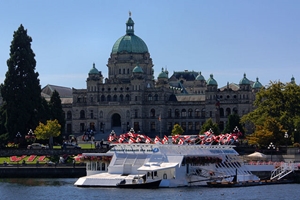
Two campaign finance bills affecting local elections in British Columbia were passed last week by the Legislative Assembly.
On May 1, Bill No. 20, the Local Elections Campaign Financing Act, and Bill No. 21, Local Elections Statutes Amendment Act, 2014, were passed after the third readings. The new laws will require, among other changes, third party advertising sponsors to register with Election B.C., report expenditures and contributions of $50 or more, and clearly identify themselves in any election advertisement.
The legislation will become effective after royal assent.
Photo of the British Columbia Legislative Assembly building courtesy of KirinX on Wikimedia Commons.
April 28, 2014 •
Lobbying Bill Introduced in Yukon Legislative Assembly
A new bill introduced in the Yukon 33rd Legislative Assembly would create a lobbying law for the territory. Introduced on April 9 by MLA Liz Hanson, Leader of the Opposition New Democratic Party, the proposed legislation creates a registrar position […]

A new bill introduced in the Yukon 33rd Legislative Assembly would create a lobbying law for the territory.
Introduced on April 9 by MLA Liz Hanson, Leader of the Opposition New Democratic Party, the proposed legislation creates a registrar position to establish and maintain the lobbyist registry. Bill 104 mandates a consultant lobbyist must file the first return within 10 days of an undertaking. An in-house lobbyist must file his or her first return within 60 days after becoming an in-house lobbyist. Subsequent returns must be filed biannually.
The bill also creates a cooling off period before former public officials could lobby the government.
On April 9, the Ontario, Canada Legislative Assembly held a second reading of Bill 179, which would amend the province’s Lobbyists Registration Act. The bill, introduced on March 24, redefines “in-house lobbyist” to include paid directors as well as employees […]
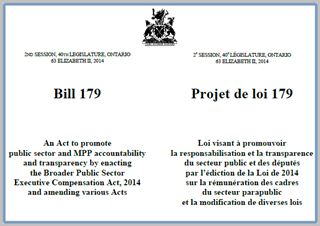
On April 9, the Ontario, Canada Legislative Assembly held a second reading of Bill 179, which would amend the province’s Lobbyists Registration Act.
The bill, introduced on March 24, redefines “in-house lobbyist” to include paid directors as well as employees and paid directors whose lobbying duties, when combined with those of the employer’s other employees and paid directors, would constitute a significant part of the duties of one employee or director.
The bill requires a single filing of returns by the senior officer of the employer instead of requiring in-house lobbyists themselves to file returns.
Additional amendments to the filing procedures include requiring returns to indicate whether the lobbyist was previously in public office, what the goal of the reported lobbying was, and to provide the name of any minister, member, or member of the minister’s or member’s staff who was lobbied.
The bill also increases penalties for convictions of any offense from a maximum fine of $25,000 to a maximum fine of $25,000 for a first offense and a maximum fine of $100,000 for subsequent offenses.
April 8, 2014 •
Liberals Win Majority in Quebec Election
A special election was held in Quebec on April 7, resulting in a new majority government. Premier Pauline Marois, leader of the Parti Quebecois, called the election hoping her party would garner a majority of seats within the National Assembly. […]
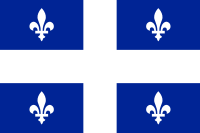
A special election was held in Quebec on April 7, resulting in a new majority government.
Premier Pauline Marois, leader of the Parti Quebecois, called the election hoping her party would garner a majority of seats within the National Assembly. However, the Liberals took 70 of the 125 seats, giving them a majority of seats in the legislature.
Marois lost her own seat in the Charlevoix-Cote-de-Beaupre riding, causing her to step down as the leader of the Parti Quebecois. Liberal Leader Phillipe Couillard will become the new Premier of Quebec.
April 3, 2014 •
Saskatchewan Passes Lobbyists Act
After more than two years of debate, the Legislative Assembly of Saskatchewan passed a bill containing a lobbyist registration scheme. Under the new law, lobbyists, as defined therein, must register and file activity reports online. There are several notable provisions […]

After more than two years of debate, the Legislative Assembly of Saskatchewan passed a bill containing a lobbyist registration scheme. Under the new law, lobbyists, as defined therein, must register and file activity reports online.
There are several notable provisions excepting some individuals from the registration requirement, including officers, directors, or employees, when acting in their official capacity, of the Saskatchewan Urban Municipalities Association, the Saskatchewan Association of of Rural Municipalities, and the Saskatchewan School Boards Association. The bill also contains revolving door restrictions, prohibiting former public officials from lobbying within one year of leaving office.
The act becomes effective upon proclamation by the Lieutenant Governor. Justice Minister Gordon Wyant estimates no such proclamation will be issued for at least nine months, as the province must still develop protocols to administer and enforce the new law.
March 10, 2014 •
Canada RCMP Investigating Illegal Lobbying
The Royal Canadian Mounted Police (RCMP) is investigating allegations of illegal lobbying by a former senior adviser to Prime Minister Stephen Harper in connection with work for an energy advocacy group in Calgary. The RCMP says after Bruce Carson left […]
 The Royal Canadian Mounted Police (RCMP) is investigating allegations of illegal lobbying by a former senior adviser to Prime Minister Stephen Harper in connection with work for an energy advocacy group in Calgary. The RCMP says after Bruce Carson left the Office of the Prime Minister (PMO) he was paid for his top level involvement with federal contacts and to influence a new national energy strategy.
The Royal Canadian Mounted Police (RCMP) is investigating allegations of illegal lobbying by a former senior adviser to Prime Minister Stephen Harper in connection with work for an energy advocacy group in Calgary. The RCMP says after Bruce Carson left the Office of the Prime Minister (PMO) he was paid for his top level involvement with federal contacts and to influence a new national energy strategy.
As a past senior adviser to Harper, Carson is subject to a five-year ban on lobbying under the Lobbying Act.
Lobbying Commissioner Karen Shepherd initiated a probe of Carson’s lobbying activities for the Canada School of Energy and Environment and a business-funded group called the Energy Policy Institute of Canada (EPIC). Shepherd referred the allegations to the RCMP in July 2012.
EPIC’s lawyers assumed the group would be in compliance if Carson’s job description was to communicate “for the purpose of information exchange and not to represent EPIC’s view, opinion, or to ask for a decision from government.”
March 7, 2014 •
Quebec Premier Calls Election for April 7
Pauline Marois, the premier of Quebec, has called a general election to be held on April 7. Currently, elections in Quebec only take place upon a decree by the premier. Beginning in 2016, elections will have set dates. When […]
 Pauline Marois, the premier of Quebec, has called a general election to be held on April 7. Currently, elections in Quebec only take place upon a decree by the premier. Beginning in 2016, elections will have set dates.
Pauline Marois, the premier of Quebec, has called a general election to be held on April 7. Currently, elections in Quebec only take place upon a decree by the premier. Beginning in 2016, elections will have set dates.
When an election is called in Quebec, the legislative assembly dissolves (adjourns) and voters chose an entirely new one. Candidates have 33 days to campaign for the upcoming election.
Since Quebec has a parliamentary system of government, the leader of the party who garners the most assembly seats becomes the premier.
February 10, 2014 •
Rob Ford’s Behavior Inspires Ottawa Ethics Code Review
The Ottawa, Ontario ethics code is being evaluated today against the backdrop of Toronto Mayor Rob Ford’s recent public indulgences and transgressions. At an event being held at Carleton University titled “Could Rob Ford’s Antics Happen in Ottawa?” Mayor Jim […]
 The Ottawa, Ontario ethics code is being evaluated today against the backdrop of Toronto Mayor Rob Ford’s recent public indulgences and transgressions. At an event being held at Carleton University titled “Could Rob Ford’s Antics Happen in Ottawa?” Mayor Jim Watson and Integrity Commissioner Robert Marleau will assess whether the city code helps earn the public trust.
The Ottawa, Ontario ethics code is being evaluated today against the backdrop of Toronto Mayor Rob Ford’s recent public indulgences and transgressions. At an event being held at Carleton University titled “Could Rob Ford’s Antics Happen in Ottawa?” Mayor Jim Watson and Integrity Commissioner Robert Marleau will assess whether the city code helps earn the public trust.
According to the Ottawa Star, the discussion will include questions such as whether the ethics code goes beyond legal compliance to address ethical conduct, whether councillors are held accountable for ethical transgressions, and whether elected officials are treated differently than municipal employees.
Ford has received intense media scrutiny for admitting to smoking crack cocaine while holding the position of mayor, using lewd language when talking to the media, and engaging in public episodes of apparent drunkenness.
February 4, 2014 •
Former Quebec Premier Accused of Accepting Illegal Contribution
Former Quebec premier, Jean Charest, is accused of accepting $3,000 from a lobbyist while in office. The payment occurred just days before the 2008 general election and was given by a senior executive at a windmill manufacturing company. Charest denies […]

Former Quebec premier, Jean Charest, is accused of accepting $3,000 from a lobbyist while in office. The payment occurred just days before the 2008 general election and was given by a senior executive at a windmill manufacturing company.
Charest denies the allegation, according to current premier Phillipe Couillard. The allegation stems from the testimony of Louis-Pierre Lafortune, who was an investor in the same windmill manufacturing company.
The lobbyist who allegedly delivered the check to Charest has not been identified. The windmill company went bankrupt in 2010.
State and Federal Communications, Inc. provides research and consulting services for government relations professionals on lobbying laws, procurement lobbying laws, political contribution laws in the United States and Canada. Learn more by visiting stateandfed.com.

